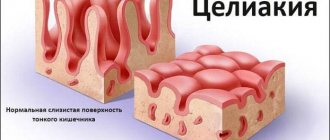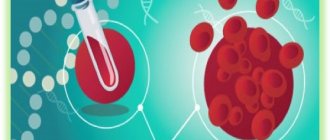"Elevit" is a medicinal product that contains vitamins and trace element compounds that are indicated for women during pregnancy and breastfeeding. Active components:
- vitamins from group B (B1, B2, B5, B6, B7, B9, B12);
- D;
- PP;
- A;
- WITH;
- E.
Along with vitamin compounds, there are also mineral components in the form of easily digestible salts:
- sulfate: manganese, copper, zinc;
- iron in the form of fumarate;
- magnesium in the form of phosphate and stearate;
- calcium in the form of phosphate and pantothenate.
The Elevit vitamin complex is available in the form of tablets, available in packages of 10, 20, 30 or 100 pieces. They are grayish-yellow in color and may have a slight odor, which is normal. The drug is stored at normal room temperature no more than 25 degrees for a total shelf life of 2 years from the date of production. Sold in pharmacies without a doctor's prescription.
"Elevit" for pregnant women: indications and contraindications
The main indications for use of the drug are deficiency of vitamins and minerals:
- hypovitaminosis (lack of vitamins);
- vitamin deficiency (lack of necessary vitamins);
- deficiencies of calcium, phosphorus, iron and other microelements;
- prevention of anemia;
- metabolic corrections, especially at the pregnancy planning stage;
- pregnancy, lactation (at all stages).
Contraindications are mainly associated with excess content of certain vitamins and mineral compounds in the body or diet. You should not take the drug if you have the following disorders:
- excess of any of the vitamins;
- excess magnesium, phosphorus, calcium;
- iron absorption disorders;
- rapid excretion of calcium in the urine;
- pathologies of the liver, kidneys (including urolithiasis, nephrolithiasis);
- stones in the kidneys.
Elevit® Pronatal 30 tablets
Elevit pronatal No. 30 tablets
Trade name Elevitâ Pronatal International nonproprietary name No Dosage form Film-coated tablets Composition One tablet contains active ingredients: vitamin A – 3600 IU, vitamin B1 – 1.6 mg, vitamin B2 – 1.8 mg, nicotinamide – 19 mg, calcium pantothenate – 10 mg, vitamin B6 – 2.6 mg, biotin – 0.2 mg, folic acid – 0.8 mg, vitamin B12 – 4 mcg, vitamin C – 100 mg, vitamin D3 – 500 IU, vitamin E – 15 mg, calcium – 125 mg, copper – 1 mg, iron – 60 mg, magnesium – 100 mg, manganese – 1 mg, phosphorus – 125 mg, zinc – 7.5 mg; Calcium in the form of calcium phosphate, calcium pantothenate, calcium ascorbate dihydrate Magnesium in the form of magnesium phosphate, magnesium stearate, magnesium oxide Phosphorus in the form of calcium phosphate, magnesium phosphate Iron in the form of iron fumarate Zinc in the form of zinc sulfate Copper in the form of copper sulfate Manganese in the form of manganese sulfate excipients: lactose monohydrate, mannitol, ethylcellulose aqueous dispersion, macrogol 6000, macrogol 400, Precirol Ato 5, gelatin, microcrystalline cellulose, ethylcellulose, sodium starch glycolate, magnesium stearate, povidone K90, povidone K30, hypromellose, talc, titanium dioxide ( E171), iron oxide yellow (E172). Description Oblong, biconvex, film-coated tablets, greyish-yellow in color with a break mark on one side of the tablet, no or barely detectable odor. Pharmacotherapeutic group Multivitamins with minerals ATC code A11AA03 Pharmacological properties Pharmacokinetics The action of the drug Elevit Pronatal is the combined effect of its components, therefore, pharmacokinetic observations are not possible: all the components together cannot be traced using markers or bioresearch. Pharmacodynamics Elevit Pronatal is a multivitamin/multimineral preparation containing vitamins in combination with minerals and trace elements, designed specifically to ensure adequate supply of microelements and vitamins for both the fetus and the pregnant woman. Vitamins are essential nutrients. They are necessary for the normal development and growth of the fetus and child, for the metabolism and synthesis of carbohydrates, energy, lipids, nucleic acids and proteins, as well as for the synthesis of amino acids, collagen and neurotransmitters. Multivitamin/multimineral preparations are intended to prevent and correct nutritional deficiencies. Pregnancy and lactation are periods of increased nutrient requirements, and accordingly, there is an increased risk of nutritional deficiencies for both mother and child. Especially during pregnancy, nutritional deficiencies pose a major health risk as they can affect the normal development of the fetus. In the period before pregnancy and during pregnancy, Elevit Pronatal replenishes the needs for vitamins and microelements necessary for the normal course of pregnancy. To reduce the risk of birth defects, including nervous system defects, it is recommended to take a folic acid supplement or a multivitamin containing folic acid. Nervous system defects develop in the first weeks after conception, during a period when pregnancy has not yet been detected, so additional use of folic acid is necessary at the pregnancy planning stage. Vitamin A is involved in the synthesis of various substances (proteins, lipids, mucopolysaccharides) and ensures the normal function of the skin, mucous membranes, and the organ of vision. Vitamin B1 normalizes the activity of the heart and contributes to the normal functioning of the nervous system. Vitamin B2 promotes tissue regeneration processes, including skin cells. Vitamin B6 helps maintain the structure and function of bones, teeth, gums, affects erythropoiesis, and promotes the normal functioning of the nervous system. Vitamin B12 is involved in erythropoiesis and contributes to the normal functioning of the nervous system. B vitamins are involved in the formation of various enzymes that regulate different types of metabolism in the body and help reduce attacks of nausea and vomiting during toxicosis in pregnant women. Vitamin C is involved in the oxidation of a number of biologically active substances, regulation of metabolism in connective tissue, carbohydrate metabolism, blood clotting and tissue regeneration, stimulates the formation of steroid hormones, and normalizes capillary permeability. Vitamin C increases the body's resistance to infections and reduces inflammatory reactions. Vitamin D3 plays an important role in maintaining the balance of calcium and phosphorus in the body of a pregnant woman. With its deficiency, rickets occurs in children, and in adults, the calcium content in bone tissue decreases (ostheoporosis). Vitamin E is a natural antioxidant. It prevents increased blood clotting and has a beneficial effect on peripheral circulation. Participates in the synthesis of proteins and hemoglobin, in the process of cell growth, the function of skeletal muscles, heart and blood vessels, gonads. A lack of vitamin E in the early stages of pregnancy can cause miscarriage. Biotin takes part in metabolic processes and promotes protein absorption. Calcium pantothenate is involved in the metabolism of fats, proteins and carbohydrates. Folic acid stimulates erythropoiesis. Nicotinamide takes part in redox processes and ensures the transfer of hydrogen and phosphate. Calcium is involved in the formation of bone tissue, blood clotting, transmission of nerve impulses, contraction of skeletal and smooth muscles, and normal heart function. It also promotes iron absorption. Magnesium is involved in the formation of muscle and bone tissue, and also takes part in protein synthesis. Iron is part of the hemoglobin molecule, participates in the transport of oxygen in the body and prevents the development of anemia in a pregnant woman, especially during the 2nd and 3rd trimesters. Phosphorus, along with calcium, is involved in the formation of bones and teeth, and is also involved in energy metabolism processes. Manganese promotes proper mineralization of bones. Copper is necessary for normal red blood cell function and iron metabolism. Zinc is necessary for the normal formation of the fetal skeleton and tissue regeneration, is part of some hormones, including insulin, and reduces the likelihood of a number of intrauterine anomalies. Indications for use - prevention and treatment of hypovitaminosis, avitaminosis, lack of minerals and trace elements during pregnancy planning, during pregnancy, after childbirth and during breastfeeding - reducing the risk of developing neural tube defects and other congenital defects, especially in those cases when the drug is started during pregnancy planning - prevention of iron deficiency anemia and anemia associated with folic acid deficiency - reduction of nausea and vomiting in the early stages of pregnancy, especially in cases where the drug is started during pregnancy planning. Method of administration and dosage The drug is taken one tablet per day with a small amount of water with meals. In case of morning sickness, the tablet should be taken at noon or in the evening. The drug is recommended for use before planned pregnancy, during pregnancy and during breastfeeding. Before starting to take the drug, you should definitely consult your doctor. Side effects The listed side effects of the drug are based on spontaneous reports. In general, the drug is well tolerated. In rare cases: gastrointestinal disorders - abdominal discomfort, constipation, bloating, vomiting, diarrhea and nausea. In rare cases: allergic reactions - urticaria, facial swelling, wheezing, redness of the skin, rash, blisters and shock. Contraindications - increased individual sensitivity to the components of the drug - hypervitaminosis A or D - severe renal failure - hypercalcemia - severe hypercalciuria - disorders of iron and copper metabolism Drug interactions There are no specific interactions noted when taking the recommended doses of the drug. Various possible interactions are described in the literature for each individual component, therefore women receiving any other treatment should consult a doctor before taking the drug. Special instructions The recommended dose of the drug should not be exceeded, since very high doses of some of the ingredients of the drug, in particular vitamin A, vitamin D, iron and copper, can have adverse effects on the body. Patients taking other vitamins/multivitamins or receiving any other treatment should consult their physician before using this product. The drug should not be used while taking other drugs, including dietary supplements/drinks containing vitamin A, synthetic isomers of isotrentinoin and etritinate, or beta-carotene, since high doses of these components may have adverse effects on the fetus and cause hypervitaminosis A. The drug should be used with special caution. Caution when taking other medications, including dietary supplements/drinks containing vitamin D may cause hypervitaminosis D. The medicinal product contains lactose and mannitol as excipients. Should not be taken by patients with rare congenital galactose intolerance, lack of Lapp-lactase, impaired absorption of glucose and galactose. The presence of riboflavin in the drug can cause urine to turn yellow, which is completely harmless. The presence of iron in the preparation can cause stool to turn black, which is completely harmless and has no clinical significance. If allergic reactions occur, you should stop taking the drug and consult your doctor. Information for patients with diabetes The drug does not contain sucrose, therefore, can be used in patients with diabetes. Pregnancy and lactation The drug is used during pregnancy and lactation; however, the recommended daily dose should not be exceeded. As with other medications, you should always consult your doctor before taking it. Pregnancy Since a dose of vitamin A exceeding 10,000 IU per day has a teratogenic effect when taken in the 1st trimester of pregnancy, Elevit Pronatal should not be prescribed simultaneously with other drugs containing vitamin A, synthetic isomers of isotrentinoin and etritinate, or beta-carotene. Chronic overdose of vitamin D has adverse effects on the fetus. For pregnant women, the Institute of Medicine (USA) has established a maximum permissible level of vitamin D of 50 mcg (2000 IU), which is considered safe. The drug Elevit Pronatal contains 200-600 IU/tablet (5-12.5 mcg/tablet). Lactation Chronic overdose of vitamin D can have adverse effects on the newborn. Vitamin D and calcium are excreted into breast milk. This must be taken into account if the child is receiving any appropriate supplements. For lactating women, the Institute of Medicine (USA) has established a maximum permissible level of vitamin D of 50 mcg (2000 IU) per day as safe. The drug Elevit Pronatal contains 200-600 IU/tablet. (5-12.5 mcg/tablet). Effect on the ability to drive a car and control complex mechanisms. Not identified. Overdose Taking recommended doses of the drug does not cause an overdose. Overdose in most cases is caused by the concomitant use of other vitamins or multivitamins in high doses. Acute or chronic overdose can cause hypervitaminosis A, hypervitaminosis D and hypercalcemia, as well as iron and copper intoxication. Nonspecific symptoms of acute overdose: sudden onset of headaches, confusion, disturbances in the digestive system - nausea, vomiting, diarrhea. Treatment: You must stop taking the drug and consult your doctor. Treatment is symptomatic. Release form and packaging 10 tablets in a blister, 3, 10 blisters with instructions for use are placed in a cardboard pack. Storage conditions Store at a temperature not exceeding +25°C in a dry place. Keep out of the reach of children! Shelf life: 2 years Do not use after expiration date. Conditions for dispensing from pharmacies Without a prescription
Side effects
In most cases, taking a vitamin complex does not cause any side effects. But if the dosage is violated, individual hypersensitivity, or certain pathologies, the following manifestations are possible:
- nausea;
- vomit;
- bloating, abdominal pain;
- diarrhea;
- hemolytic anemia;
- headache;
- dizziness;
- irritability, nervous excitability;
- hypercalciuria;
- itching, redness, rash and other allergic reactions.
If any reactions occur, you should immediately stop taking the drug and consult a doctor for advice.
With prolonged use of the drug, stool may become darker, almost black, and urine may become intensely yellow. These are normal physiological reactions associated with the action of iron and vitamin B2, respectively.
Attention!
In rare cases, side effects from the immune and cardiovascular systems are possible, including pulmonary edema, anaphylactic shock, and asthmatic attack. In such situations, you should immediately call emergency help.
Do I need iodine?
Pregnancy and childbirth can proceed normally only if the woman and child receive sufficient amounts of iodine. The fact is that iodine is part of hormones that directly regulate the intrauterine development of the fetus. Why is iodine deficiency dangerous?
- The child has a high probability of developmental delay, congenital hearing and speech defects (deafness, deaf-muteness), as well as mental retardation and underweight.
- A woman has a goiter of the thyroid gland (overgrowth).
However, iodine deficiency is a common situation for 70% of the Russian population. Research data from the Russian Academy of Medical Sciences show that no more than 37% of the required amount of iodine enters the body of a pregnant woman with food.
As with iron, large doses of iodine scare women. However, these doubts and fears are in vain: taking iodine-containing complexes is not recommended only for women with Graves' disease. This is a rare disease, occurring in only 2% of the world's population.
| Alphabet Mom's health | Vitrum Prenatal | Complimentary Mom | Complivit Trimester | Pregnoton Mom | Femibion Natalcare I and II | Elevit Pronatal |
| Iodine 150 mcg | — | — | Trimester 1 Iodine 200 mcg Trimester 2 Iodine 150 mcg Trimester 3 Iodine 100 mcg | Iodine 150 mcg | Iodine 150 mcg | — |
Vitamins "Elevit": instructions
The drug is taken in the amount of 1 tablet per day, preferably in the morning, 15-20 minutes after breakfast. There is no need to violate the dosage - it is enough to take 1 tablet, since it contains all the essential microelements and vitamins in a daily dose.
The duration of the course ranges from several weeks to several months - throughout all trimesters of pregnancy. Subsequently, the course can be continued during lactation, in consultation with the doctor.
If the dosage is violated, symptoms such as:
- vomit;
- nausea;
- prolonged constipation;
- severe pain in the head.
In these cases, symptomatic treatment is indicated, using drugs for the head, stomach or intestines.
What about calcium?
Calcium is not always included in vitamin and mineral complexes for pregnant women. The reason lies in the ambiguity of this mineral. It is undoubtedly extremely important for the normal development of the fetus and the well-being of the mother: without it, cramps often appear, bones become fragile, and teeth suffer. But, on the other hand, if there is too much calcium, problems may arise. If there is an excess of calcium, the placenta becomes calcified, which interferes with the supply of necessary substances to the fetus. The woman’s pelvic bones become too hard and diverge worse, and the baby’s skull becomes rigid, which can cause complications during childbirth.
However, these are not all the problems associated with calcium. It interferes with the absorption of iron when both elements enter the body at the same time. But iron is needed by the body of mother and child. Therefore, doctors tend to prescribe calcium supplements only when there is clearly a deficiency. In this case, calcium is most often prescribed as a separate drug, since quite a lot of calcium is needed to combat deficiency, and it simply “will not fit” in a tablet or capsule with other useful substances.
To solve these problems, manufacturers had to work hard. Thus, the Alphabet Mom’s Health complex includes both components, but they are in separate tablets. This solution made it possible to leave a large dosage of calcium, but to exclude its contact with iron. Manufacturers Femibion and Pregnoton Mama excluded calcium in favor of iron. There is very little calcium in other preparations; it will not help cope with the deficiency.
| Alphabet Mom's health | Vitrum Prenatal | Complimentary Mom | Complivit Trimester | Pregnoton Mom | Femibion Natalcare I and II | Elevit Pronatal |
| Calcium (in a separate tablet) 250 mg (25%) | Calcium 200 mg (20%) | Calcium 25 mg (2.5%) | Trimester 1 30 mg (3%) Trimester 2 40 mg (4%) Trimester 3 50 mg (5%) | — | — | Calcium125 mg (12.5%) |
Drug interactions and special instructions
The vitamin complex "Elevit" interacts differently with other drugs:
- Antibiotics of the tetracycline group and antiviral agents are absorbed less well, so their therapeutic effect is weakened.
- Antacids used for gastritis and other gastric pathologies reduce the absorption of Elevit components.
- Combining vitamins with anticoagulants and medications that affect blood clotting should be done with caution. In some cases, it is possible to increase blood viscosity, which leads to serious consequences, and extremely rarely to death.
- The use of laxatives together with a vitamin complex can lead to the risk of increasing calcium concentrations, which can lead to the deposition of salts in the urinary system. In case of a long course, regular testing is indicated.
- Taking Elevit reduces the therapeutic effect of medications such as Penicillamine, Levodopa, Thyroxine, drugs based on biosphosphonates and fluoroquinols.
When taking vitamins together with foods containing large amounts of phytic and oxalic acids, problems with calcium absorption are possible.
Concomitant use with alcoholic beverages is allowed, but the therapeutic effect will be weakened. In addition, during all stages of pregnancy and lactation it is recommended to give up bad habits, including smoking.
Folic acid: what is important?
Folic acid, or vitamin B9, is the most important vitamin for pregnant women. Our mothers and grandmothers also took it during the period of bearing a child. It is not surprising that vitamin B9 is included in all vitamin complexes for expectant mothers.
Folic acid deficiency can cause serious developmental problems in the fetus:
1. In the first trimester, a lack of vitamin B9 is especially dangerous, because it can cause a defect in the closure of the neural tube, spina bifida, and underdevelopment of the brain.
2. In the second trimester, folic deficiency leads to disturbances in the development of the heart, blood vessels, and organs of the urinary system.
3. In the third trimester, a deficiency of this vitamin affects the child’s growth and brain health.
Unfortunately, a lack of vitamin B9 is genetically determined in half of the population of our planet. About 50% of people do not produce enough of the enzyme needed to convert folic acid into its active form, methylfolate. There are also those who do not synthesize the enzyme at all - their number (according to various estimates) is from 5 to 25%. These people should only take methylfolate. It is absorbed regardless of genetic characteristics, that is, deficiency will not occur.
The active form of vitamin B9 - methylfolate - is contained in only two drugs: Femibion and Pregnoton Mama.










